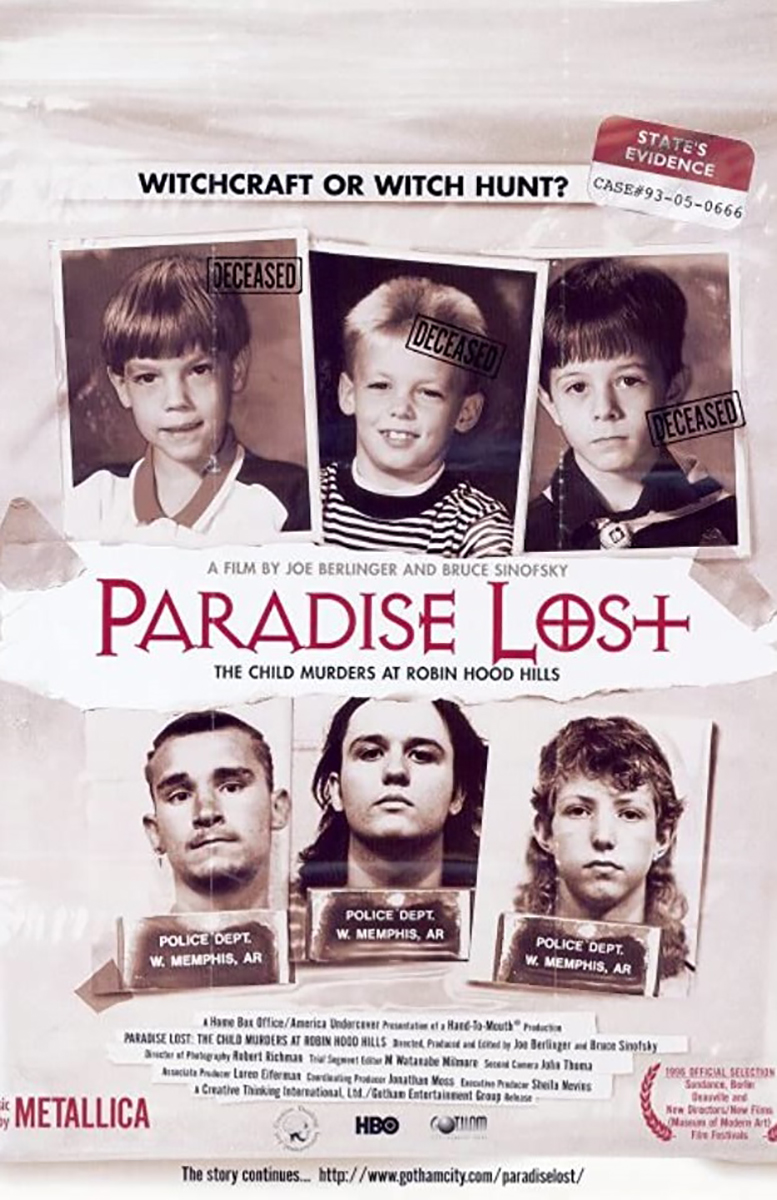Before the true crime series Making A Murderer captured international attention, there was the 1996 documentary Paradise Lost: The Child Murders at Robin Hood Hills. This documentary was released as three feature-length films over the course of almost 10 years, the original being followed up in 2000 and 2011. They follow the case of three West Memphis second graders who have been murdered, mutilated, and disposed of in a shallow creek.
Three teenage boys (dubbed the “West Memphis Three”), alleged to be Satan worshippers, were accused of the crimes and found guilty in what seems to be a horrifically biased trial. The boys were picked out because they listened to heavy metal, wore black, and one of the boys, Damien Echols, was found to be studying the Wicca religion. The series features the music of Metallica, follows the families of the victims and of the accused, and includes footage from the trials. It parallels the popular Netflix docuseries “Making A Murderer” in that it gives viewers an objective look inside the case through interviews with the accused boys, allowing the audience to decide for themselves who they think is guilty. It is full of drama and also captures a snapshot of the “Satanic Panic” era of the early ‘90s.
It’s no doubt the ‘90s were a culturally significant time for many things, including that it was the decade where court T.V. (having cameras present in court) was first emerging, notably in the O.J. Simpson trial. An article from Rolling Stone states that the Paradise Lost documentary “became one of the most catalytic documentaries ever produced.” Indeed, when it aired on HBO it sparked a public outcry and an almost ironic cult following of people who began publicly opposing the sentencing of the boys.
Swarms of media began showing up at every hearing and the group defending the boys, using the slogan “Free the West Memphis Three,” saw multiple celebrities jumping on board, including Natalie Main, Johnny Depp, and Eddie Veder. Beyond the cultural impact it had at the time, it was also one of the earliest forms of the true crime docuseries genre that is so popular today. Producer Joe Berligner states in the Rolling Stone article: “As Hollywood becomes more about $200 million tent pole comic-book sequels and the kind of movie that came out of the original Miramax in the Nineties that we all love has died, the independent documentary has been able to step into the void … They’re the art films of today.”
The documentary is a well-produced and objective look at the case. It doesn’t feature interviews with experts and family members looking back on the case; rather, it’s unique in that it follows the case in real time, as it’s happening — and it went on to do so for the next decade.
Darien Johnsen is a UFV alumni who obtained her Bachelor of Arts degree with double extended minors in Global Development Studies and Sociology in 2020. She started writing for The Cascade in 2018, taking on the role of features editor shortly after.
She’s passionate about justice, sustainable development, and education.



